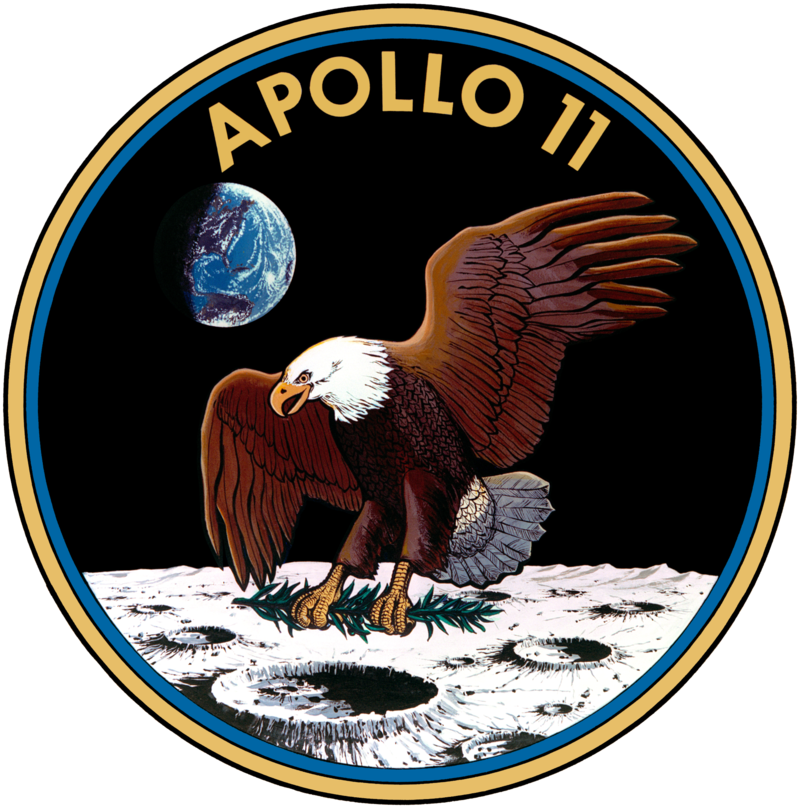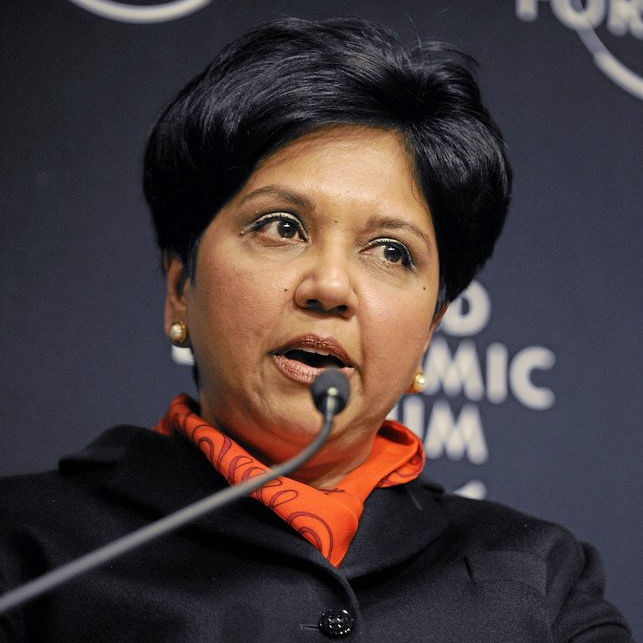Imagine standing at the crossroads of your career, facing challenges that demand razor-sharp decision-making, effortless collaboration, and inspiring leadership. Success in such moments isn’t born out of luck, it’s built on a seamless integration of cognitive, interpersonal, and leadership skills! These three dimensions are not just separate strengths, they work together like the gears of a precision machine, propelling your personal and professional growth.
Delving into psychology and neuroscience, and drawing inspiration from high achievers, this comprehensive series #letsskillit explores how mastering these skills can transform your career and life. On today’s final blog of the series, we synthesise and reiterate key takeaways!
Cognitive Skills: The Thinking Brain in Action
At the heart of cognitive skills lie critical thinking, creativity, and planning, mental capabilities that guide problem-solving, innovation, and decision-making. Neuroscientists call this the “executive function” of the brain, orchestrated by the prefrontal cortex. It’s the control centre that filters distractions, priorities tasks, and connects dots to achieve clarity.
Critical Thinking: Sharpening the Mind’s Edge
Critical thinking involves analysing facts to form a judgment. It’s about being objective, evaluating information systematically, and reasoning logically. According to psychologists, critical thinking is essential for problem-solving and decision-making, enabling individuals to sift through information and identify the most relevant aspects. Neuroscience reveals that critical thinking engages the prefrontal cortex, enhancing focus and reducing impulsivity. This area of the brain is crucial for higher-order cognitive functions, such as working memory and cognitive flexibility. Critical thinking involves breaking down complex problems and making reasoned decisions. It’s no surprise that top CEOs rank it as the most valuable skill.

During the early days of Netflix, co-founder Reed Hastings faced a decision that would make or break the company: keep DVD rentals as their core service or pivot to streaming. By analyzing market trends, user behavior, and technological advancements, Hastings made the bold move to focus on streaming. Today, Netflix dominates the industry, proving the power of critical thinking in anticipating change.
Pro Tip: Enhance your critical thinking by regularly engaging in activities that challenge your reasoning, such as puzzles, strategy games, or debates. Additionally, practice questioning assumptions and exploring alternative perspectives in your daily tasks. Whether it’s navigating office politics or tackling a tough work project, critical thinking equips you to see through complexity and act with precision.
Creativity: The Brain’s Innovation Engine
Creativity doesn’t belong solely to artists it’s a skill professionals across industries rely on to solve problems and create value. Creativity is the ability to generate novel and valuable ideas. It’s not confined to the arts; creativity is pivotal in problem-solving, strategic planning, and innovation across all industries.
Creativity activates the brain’s default mode network (DMN), responsible for imagination, daydreaming, and spontaneous thinking. Engaging in creative activities strengthens neural connections, enhancing cognitive flexibility and the ability to see connections between disparate ideas. Creativity allows you to reframe challenges as opportunities.

Steve Jobs epitomized creativity by merging technology with design to create products that revolutionized industries. His ability to connect dots from different domains such as user experience, aesthetics, and functionality led to iconic products like the iPhone and MacBook. Jobs’ creative vision transformed Apple into a symbol of innovation and excellence. It was able to understand customer's problems and needs much ahead of time and build products to address these unmet needs.
Pro Tip: Foster creativity by setting aside time for brainstorming without constraints. Engage in activities that inspire you, such as reading diverse genres, traveling, or learning new skills. Encourage a mindset of curiosity and experimentation in your work environment.
Planning: Turning Vision into Action
Planning involves setting goals, outlining steps to achieve them, and organising resources effectively. It bridges the gap between aspirations and tangible outcomes, ensuring that efforts are directed towards meaningful objectives. Effective planning engages the brain’s executive functions, particularly the anterior prefrontal cortex, which is involved in goal setting, decision-making, and prioritisation. Research indicates that structured planning enhances productivity and reduces stress by providing clarity and direction. No matter your role, planning ensures that your efforts align with long-term goals..

Oprah Winfrey attributes much of her success to meticulous planning and goal-setting. From her early days in media to building a media empire, Oprah consistently outlined clear objectives and actionable steps. Her practice of journaling her ambitions helped her stay focused and adapt to changing circumstances, ultimately leading to unparalleled success in television, publishing, and philanthropy.
Pro Tip: Utilise planning tools like Trello, Notion, or even a simple planner to outline your goals and track progress. Break down large projects into smaller, manageable tasks and prioritise them based on urgency and importance using techniques like the Eisenhower Matrix.
Interpersonal Skills: Connecting Minds and Hearts
Interpersonal skills are the abilities that facilitate effective and harmonious interactions with others. These skills are crucial for collaboration, networking, and building meaningful professional relationships. While cognitive skills drive individual excellence, interpersonal skills enable you to thrive in a team. These skills are rooted in emotional intelligence (EQ). The ability to connect with others, empathise, and communicate effectively is what sets apart the average from the extraordinary.
Communication: Building Bridges
Effective communication is the cornerstone of successful teamwork and leadership. It involves not only conveying ideas clearly but also listening actively and empathetically to others. Strong communication skills are vital for clear expression, active listening, and conflict resolution. Research shows that companies with open communication outperform their peers by 25% (McKinsey, 2024).
Neuroscience highlights the role of mirror neurons in communication, which enable us to empathise and understand others’ emotions. Clear and empathetic communication fosters neural synchronisation between individuals, enhancing mutual understanding and collaboration.

Martin Luther King Jr.’s “I Have a Dream” speech is a quintessential example of powerful communication. His ability to articulate a compelling vision with emotional resonance galvanized millions and spurred the Civil Rights Movement. King’s mastery of rhetoric and empathy created a lasting impact, demonstrating how effective communication can inspire and mobilise people towards a common goal.
Pro Tip: Improve your communication skills by practicing active listening. Focus fully on the speaker, acknowledge their message, and respond thoughtfully. Additionally, work on articulating your ideas clearly and confidently, whether in writing or speaking.
Building Relationships: The Social Superpower
Building strong, meaningful relationships in the workplace fosters trust, collaboration, and mutual support. It’s about creating a network of allies who can offer guidance, resources, and opportunities. Strong relationships enhance collaboration and open doors to opportunities. Studies show that 85% of jobs are filled through networking, underscoring the importance of building connections (LinkedIn, 2016).
Positive social interactions trigger the release of oxytocin, the "bonding hormone," which enhances feelings of trust and connection. Strong professional relationships contribute to higher job satisfaction and better mental health, promoting a supportive work environment.

Satya Nadella’s tenure as CEO of Microsoft is marked by his emphasis on empathy and relationship-building. By fostering a culture of collaboration and inclusivity, Nadella transformed Microsoft’s work environment, driving innovation and achieving record-breaking growth. His leadership style underscores the importance of building strong interpersonal connections to inspire and motivate teams.
Pro Tip: Cultivate relationships by regularly engaging with colleagues, seeking out mentorship opportunities, and offering support to others. Attend networking events, both online and offline, to expand your professional circle and create meaningful connections. Remember, relationships are not just about giving but creating value for both sides.
Teamwork: Achieving More Together
Teamwork is the collaborative effort of a group to achieve a common goal. It leverages diverse skills, perspectives, and strengths to produce superior outcomes compared to individual efforts. Effective teamwork relies on creating an environment where individuals feel safe to share ideas. Teams that prioritise psychological safety, where everyone’s input is valued, are shown to be more innovative and productive.
Effective teamwork enhances collective intelligence and problem-solving abilities. Psychological safety, where team members feel safe to express ideas and take risks, is crucial for fostering creativity and high performance. Neuroscience shows that collaborative environments stimulate brain regions associated with social cognition and creativity.

The success of NASA’s Apollo 11 mission was a testament to exceptional teamwork. Scientists, engineers, and astronauts worked in unison, each bringing specialized expertise to overcome unprecedented challenges. This seamless collaboration led to the historic moon landing, showcasing how effective teamwork can achieve monumental milestones.
Pro Tip: Enhance teamwork by promoting open communication, encouraging diverse perspectives, and fostering an environment of mutual respect. Implement regular team-building activities and ensure that each member’s strengths are recognized and utilised effectively. Collaborate actively by respecting diverse viewpoints, contributing constructively, and aligning team efforts with shared goals. Great teamwork isn’t about competition; it’s about complementing each other’s strengths
Leadership Skills: Inspiring Through Vision and Action
Leadership skills encompass the abilities that enable individuals to guide, inspire, and influence others towards achieving common goals. These skills integrate self-mastery with strategic vision and the ability to motivate and empower teams. They are essential for guiding teams and inspiring change, whether in formal management roles or everyday situations.
Self-Awareness: Leading from Within
Self-awareness is the conscious knowledge of one’s own character, feelings, motives, and desires. It is a fundamental component of emotional intelligence (EQ) and is crucial for effective leadership. Self-awareness is the ability to recognize and regulate your emotions, motivations, and behaviors
Neuroscience links self-awareness to the anterior cingulate cortex, which plays a role in introspection and emotional regulation. High self-awareness allows leaders to recognise their strengths and weaknesses, adapt their behaviour, and respond to challenges with resilience.

Jeff Bezos’s self-awareness was pivotal in Amazon’s transformation from an online bookstore to a global e-commerce and technology giant. Bezos recognized his passion for customer-centric innovation and leveraged it to drive Amazon’s expansion into diverse markets, including cloud computing with AWS and artificial intelligence with Alexa.
Pro Tip: Enhance self-awareness by regularly reflecting on your actions and decisions through journaling or meditation. Seek feedback from trusted peers and mentors to identify blind spots and areas for improvement. Practice mindfulness to stay attuned to your emotions and reactions. Start by reflecting on your strengths, weaknesses, and triggers.
Entrepreneurial Drive: Creating Opportunities
Entrepreneurial drive is the motivation to innovate, take risks, and pursue opportunities with determination. It’s characterized by resilience, adaptability, and a proactive mindset.
Entrepreneurial drive is fuelled by dopamine, the brain’s reward chemical, which is associated with motivation and pleasure. High intrinsic motivation enhances goal pursuit and perseverance, essential traits for entrepreneurs facing uncertainty and setbacks.

Sara Blakely, the founder of Spanx, embodies entrepreneurial drive. Starting with just $5,000 and a revolutionary idea to create comfortable, slimming undergarments, Blakely faced numerous rejections from manufacturers. Her unwavering belief in her product, coupled with innovative marketing strategies, transformed Spanx into a billion-dollar enterprise. Blakely’s journey highlights the importance of resilience, creativity, and a relentless pursuit of one’s vision.
Pro Tip: Cultivate entrepreneurial drive by setting ambitious yet achievable goals, embracing challenges as opportunities for growth, and maintaining a positive attitude in the face of setbacks. Surround yourself with supportive networks and continuously seek out new learning experiences. Foster entrepreneurial drive by embracing challenges, learning from failures, and staying curious. Even if you’re not an entrepreneur, this mindset can help you lead initiatives and innovate in your role.
Goal Achievement: Turning Vision into Reality
Goal achievement involves setting, pursuing, and accomplishing specific objectives. It provides direction, motivation, and a sense of purpose, driving individuals and teams towards success. Achieving goals activates the brain’s reward pathways, particularly the nucleus accumbens, which reinforces positive behaviour and motivates continued effort. Setting clear, specific goals enhances focus and perseverance, while tracking progress sustains motivation.

Michael Phelps, the most decorated Olympian of all time, attributes his success to meticulous goal-setting and relentless pursuit of excellence. By breaking down his training into micro-goals, such as improving his stroke technique or increasing his stamina, Phelps maintained focus and motivation throughout his career. His strategic approach to goal achievement resulted in unprecedented success in the pool, demonstrating the power of disciplined planning and perseverance.
Pro Tip: Implement the SMART criteria: Specific, Measurable, Achievable, Relevant, and Time-bound for setting effective goals. Regularly review and adjust your goals based on progress and changing circumstances. Celebrate milestones to maintain motivation and momentum.
The Interplay of Skills: A Symphony of Success
The integration of cognitive, interpersonal, and leadership skills creates a synergistic effect that amplifies overall performance and success. These skills are not isolated, they interact dynamically to enhance each other, creating a comprehensive skillset that is adaptable and resilient.
Cognitive skills like critical thinking and planning provide the foundation for effective problem-solving and strategic decision-making. When combined with interpersonal skills such as communication and relationship-building, these cognitive abilities become more impactful, facilitating collaborative efforts and innovative solutions.

During the COVID-19 pandemic, healthcare teams worldwide exemplified the synergy between cognitive and interpersonal skills. Critical thinking was essential in developing treatment protocols and managing resources. Simultaneously, effective communication and strong relationships among team members ensured coordinated efforts and emotional support, enabling healthcare professionals to navigate unprecedented challenges successfully.
Interpersonal skills enable leaders to connect with their teams, fostering trust and collaboration. Leadership skills such as self-awareness and entrepreneurial drive empower leaders to inspire and motivate their teams, creating an environment conducive to high performance and innovation.

Jacinda Ardern, former Prime Minister of New Zealand, demonstrated the powerful interplay of interpersonal and leadership skills during her tenure. Her empathetic communication and strong relationship-building fostered a sense of unity and resilience, especially during crises like the Christchurch mosque shootings and the COVID-19 pandemic. Ardern’s leadership style, characterized by empathy and strategic decision-making, earned her global admiration and highlighted the effectiveness of combining interpersonal finesse with visionary leadership.
Leadership skills such as self-awareness and entrepreneurial drive enhance cognitive abilities by providing clarity of vision and the motivation to implement innovative ideas. Conversely, cognitive skills like critical thinking and planning enable leaders to strategise effectively and execute their vision.

Indra Nooyi, former CEO of PepsiCo, showcased the synergy between cognitive and leadership skills throughout her career. Her self-awareness allowed her to understand her strengths and weaknesses, while her critical thinking enabled her to navigate complex business challenges. Nooyi’s entrepreneurial drive led to strategic initiatives like the acquisition of Tropicana and the expansion into healthier product lines, aligning PepsiCo’s business goals with evolving consumer preferences. Her ability to integrate cognitive strategies with strong leadership resulted in sustained growth and innovation for the company.
Professionals who integrate these skills often experience accelerated career advancement. They transition smoothly from individual contributors to influential leaders, equipped to manage teams, drive projects, and innovate within their organizations. This holistic skillset not only enhances job performance but also positions individuals as valuable assets capable of shaping the future of their industries.
Mastering Your Career Through Skills
Mastering cognitive, interpersonal, and leadership skills is not merely about excelling in individual areas but about integrating these competencies to create a synergistic effect that propels personal and professional growth. This holistic approach enables you to navigate complex challenges, foster meaningful relationships, and lead with vision and empathy.
Drawing inspiration from high achievers like Elon Musk, Steve Jobs, and others, it’s evident that the convergence of cognitive, interpersonal, and leadership skills can lead to extraordinary success. These individuals have demonstrated that by continuously developing and integrating these skills, they can drive innovation, inspire teams, and achieve remarkable accomplishments.
Psychological and neuroscientific research underscores the importance of these skills, highlighting their impact on brain function, emotional regulation, and social interactions. Understanding the science behind skill development empowers you to adopt effective strategies for growth and resilience.
Embarking on the journey to master these skills requires dedication, self-reflection, and a commitment to continuous improvement. Start by identifying areas for development within each skill category and implement actionable steps to enhance them. Remember that skill development is a lifelong process, and each step forward brings you closer to your ultimate career and personal goals. By integrating cognitive, interpersonal, and leadership skills, you can navigate the complexities of the modern world with confidence and achieve unparalleled success. Success isn’t accidental, it’s a skillset. So, are you ready to master yours?
Keep following Skillstr for tips that make a real impact on your career. Want to explore more? Sign up now to get invite-only early access to our AI app. Together, we’ll crush those goals and show the world how it’s done. We’re all about helping you master the essential career skills to crush your goals. Let’s achieve big things together! 🎉
#Skillstr #letsskillIt #Career #CareerSuccess #CareerSkills #PowerSkills #SuccessSkills #PersonalDevelopment